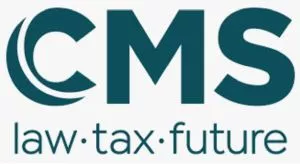- with readers working within the Securities & Investment industries
- within Wealth Management, Insurance, Media, Telecoms, IT and Entertainment topic(s)
Background
The Sustainable Finance Disclosures Regulation (SFDR1) applies since March 2021 with a view to providing transparency to investors about the sustainability risks associated with their investments and potential adverse impacts such investments have on the environment and society.
On 14 September 2023, the European Commission (the EC) published two consultation papers on SFDR. On the one hand, an open consultation on the practical implementation of SFDR aimed at a broader range of stakeholders with a more general knowledge of SFDR (the Open Consultation). On the other hand, a target consultation for those who are more familiar with the details of SFDR, which aims at identifying potential improvements and shortcomings to the current framework (the Targeted Consultation, and together with the Open Consultation, the Consultations). The Consultations took place from 14 September 2023 until 22 December 2023.
On 3 May 2024, the EC published a summary report of the contributions made by stakeholders to the Consultations (the Report2). This publication is intended to highlight the most striking points of such Report.
Key takeaways
324 organisations and individuals participated in the Targeted Consultation – predominantly from France, Germany, Belgium, Spain and Luxembourg (6%), while also featuring non-EU respondents (UK and US). Financial market participants (FMPs) and financial advisers made up the largest group of respondents (63%, 204 out of 324), mostly including asset management firms (75%), insurance companies (14%), and banks (10%). 51 organisations and NGOs answered the Open Consultation.
The attainment of SFDR objective faces practical challenges
The Report highlights a large support for the broad objectives of SFDR (89%) but key limitations in terms of its implementation that, according to most respondents, have hindered the effectiveness and usability of the framework.
Respondents mostly agree that SFDR is the appropriate legal instrument to deal with the accuracy and fairness of marketing communications, and the use of sustainability-related names for finance products, while several stakeholders raised timing concerns regarding ESMA guidelines for fund names and regulatory coherence with a potential new product categorisation system.
However, for a vast majority of respondents (83%), SFDR, as applied today, is not being used solely as a disclosure framework as intended, but also as a labelling or marketing tool (especially with respect to "Article 8" and "Article 9" products).
84% of respondent agreed that the disclosures required under SFDR are not sufficiently useful to investors and 82% that some of its requirements and concepts (such as "sustainable investments") are not sufficiently clear.
Limitations create legal uncertainty and pose reputational risks for FMPs and financial advisers (for 80% of respondents) as well as risks of greenwashing (for 81% of respondents). A large majority of FMPs face challenges with the requirement to take into account principal adverse impact (PAI) indicators and find it unclear how they should approach materiality as regards these PAI indicators in the context of the product disclosures. 98% of FMPs face difficulties in obtaining good-quality data and 53% reporting engaging largely with the investee companies to encourage reporting of the missing data.
In that respect, a large majority of respondents called for a simplification of disclosures at the level of the entity (FMP) and a streamline across the sustainable finance frameworks (notably to avoid overlapping requirements between SFDR and CSRD).
A SFDR reform and labellisation regime welcomed by the market
56% of respondents supported the introduction of a uniform set of disclosure requirements for all financial products offered in the European Union (EU), as well as additional disclosures for products making sustainability claims. However, respondents against this proposal fear additional costs and potential lack of relevance of such disclosure which may not align with the product investment strategies, and potentially lead to greenwashing.
The Report finally underlines a strong support for a voluntary categorisation system regulated at EU level but no clear preference for one of the two proposed approached to a potential EU categorisation system (whether based on new criteria, not based on the existing concepts under SFDR – supported mostly by national competent authorities and the asset management sector) or a categorisation around "Article 8" and "Article 9 products" (supported mostly by the insurance sector).
Many respondents indicated that they would support a hybrid approach combining established SFDR concepts with a voluntary categorisation framework.
While there are diverging approaches amongst respondents, commonly agreed principles for the categories can be identified: it should (i) be easily understandable for retail investors, (ii) take into consideration the international dimension and third countries' categorisation systems, (iii) create a specific category integrating the concept of transition finance (for 72% of respondents), and (iv) use underlying criteria that are asset-neutral and applicable to all types of financial products (today, SFDR is mostly adapted to public equity).
What's next?
Over two years since the implementation of the Sustainable Finance Disclosures Regulation (SFDR), the Consultations have indeed demonstrated the collective endeavour necessary to mold the future of sustainable finance within the European Union. The Report offers valuable industry perspectives on the SFDR and the evolution of the EU's sustainability framework.
However, it is unfortunate that the Report does not provide specific timelines or methodologies for the potential implementation of changes based on the outcomes of the Consultations. This leaves a degree of uncertainty about the future direction of the SFDR and its impact on the EU's sustainable finance landscape.
While the SFDR has made significant strides in promoting sustainable finance within the EU, there is still work to be done. The industry eagerly awaits further clarity on the future direction of the SFDR and its role in shaping sustainable finance in the EU.
Footnotes
1. eur-lex.europa.eu/legal-content/EN/TXT/PDF/?uri=CELEX:32019R2088
The content of this article is intended to provide a general guide to the subject matter. Specialist advice should be sought about your specific circumstances.





